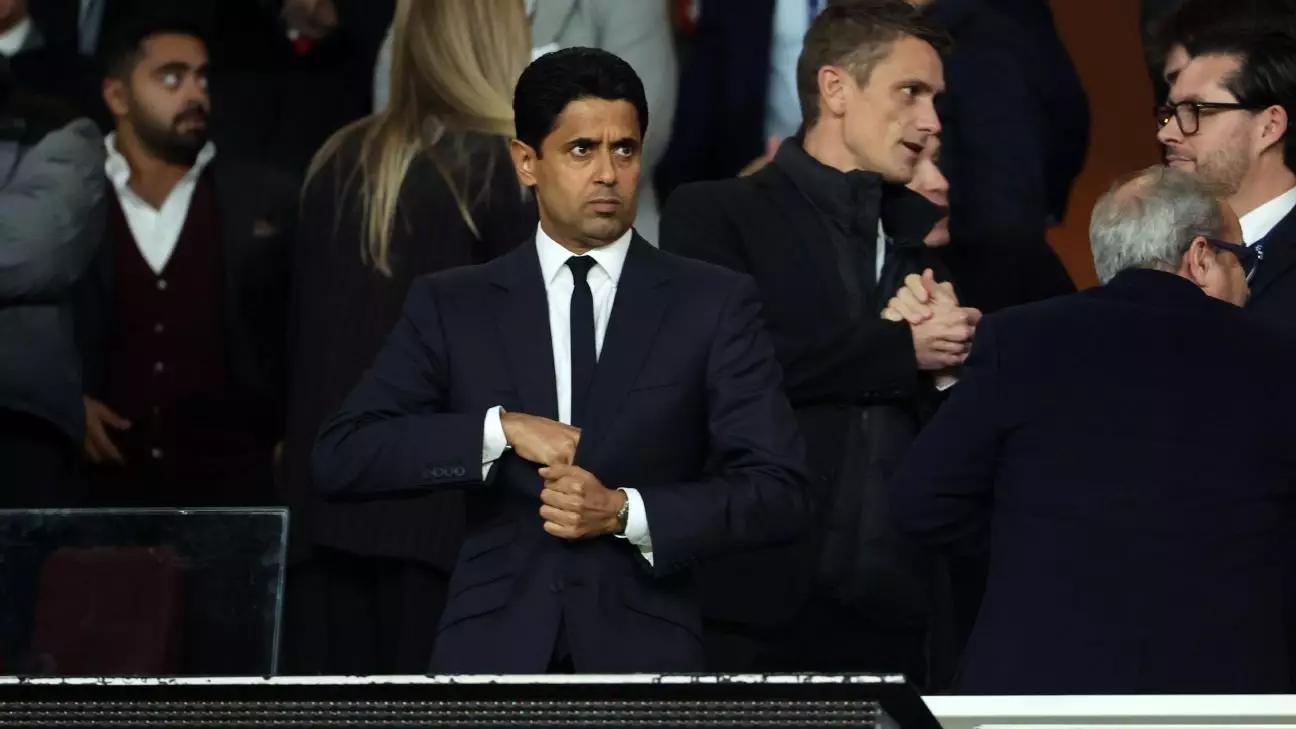The anticipation surrounding the new format of the FIFA Club World Cup is palpable, yet it is met with varying degrees of skepticism from players, coaches, and football clubs. Nasser Al-Khelaïfi, president of Paris Saint-Germain (PSG) and chairman of the European Club Association (ECA), has emerged as a vocal supporter of the tournament, which is slated to debut in the United States on June 15, 2025. His statements at the recent ECA general assembly in Athens, Greece, reflect a robust defense of the revamped competition, designed to feature 32 teams over a month-long series of matches. Nevertheless, as the football community grapples with the implications of this new format, it is essential to critically examine its potential impacts.
One cannot overlook the pressing concern regarding the already congested football calendar. As noted by various players and clubs, the introduction of this tournament could very well lead to an exhausting 11-month season for teams that progress deep into the competition. Criticism has focused on the additional stress placed on players, already burdened by domestic leagues, continental tournaments, and international matches. The comprehensive schedule raises the question: is this excess viable from a player welfare perspective?
Al-Khelaïfi’s response to these concerns is telling. He urged clubs and players expressing dissatisfaction with the tournament’s design to withdraw from participation. His sentiments raise a critical point about the implications of such a stance: football clubs are not merely competitive entities; they are businesses seeking to balance financial viability with athlete wellbeing. In a world where player salaries continue to rise, the challenge becomes how clubs can offset these costs without jeopardizing the health of their athletes.
Discussions surrounding the tournament highlight a crucial need for dialogue among all stakeholders in the football ecosystem. Al-Khelaïfi acknowledged that the calendar is always a contentious issue, insisting that all interested parties must come together to create sustainable solutions. While he asserts that clubs are eager to embrace the tournament, it is clear that genuine negotiations must occur to ensure that player health is not compromised.
The concerns expressed by figures like Manchester City manager Pep Guardiola about the Premier League’s refusal to allow a delayed start to the season demonstrate the complexities of navigating relationships between domestic leagues and international tournaments. A collaborative approach that bridges various competitions may be essential for managing player loads effectively, ensuring the longevity of athletes’ careers, and maintaining the quality of the sport.
Another layer of complexity lies in the financial motivations behind the FIFA Club World Cup. Al-Khelaïfi claims that clubs are not solely competing for financial gain, but rather seek to recover costs associated with their growing expenditures. Yet, one has to wonder whether this assertion holds up under scrutiny. The proliferation of high stakes tournaments often leads to concerns about the commodification of the sport, where financial interests occasionally overshadow the spirit of competition.
The assertion that the Club World Cup will provide important revenues to both participating and non-participating clubs poses an interesting point. While increased income may help clubs stabilize their financial standing, it begs the question of whether this compensation will justify the toll taken on players’ physical and mental health over an extended season.
As anticipation builds for the inaugural FIFA Club World Cup under its new format, mixed reactions are evident throughout the football community. On one end, clubs and officials like Al-Khelaïfi are optimistic about the tournament’s potential to innovate and elevate global football. Conversely, reservations voiced by managers, players, and even fans reveal an undercurrent of apprehension regarding player welfare and an already packed schedule.
Ultimately, the success of the FIFA Club World Cup hinges not only on financial success but also on how well it can balance the myriad of competing interests in football. Constructive dialogue and proactive strategies are paramount if the tournament is to achieve its goals while ensuring a sustainable and competitive environment for athletes. The coming years will be pivotal in determining whether this advance into a new era of football will thrive or falter under the weight of its expectations.

